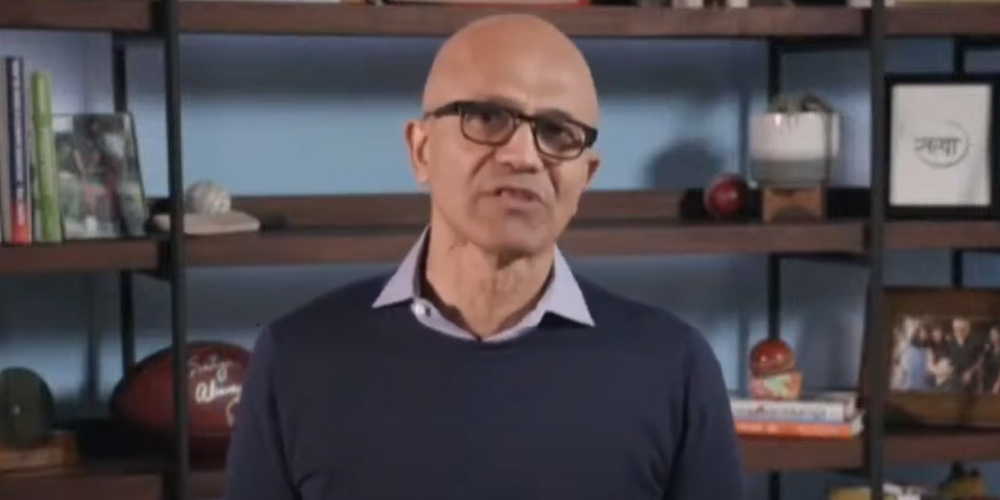A CEO of a company, large or small, must have a set of skills to be considered a good leader. They need to be competent because CEOs are responsible for running or managing companies.
By its nature, CEOs need to meet the needs of customers, employees, investors, the law, and communities. While some roles can be delegated, CEOs should still possess certain traits.
For example, they need to have vision in order to have a clear direction in which they want to steer their business. They need to be receptive, capable of listening to others around them, including the market, motivated and capable of motivating, capable of adapting on the fly, and can be trusted.
Satya Nadella, the CEO of Microsoft, has his own approach that makes him a contrast to his predecessors.
For example, he is able to differentiate himself from Bill Gates, the founder of Microsoft and its first CEO. When Gates praised Microsoft products, sometimes with no base and facts, like when he praised Bing as a better product than Google, Nadella never approach Google heads on, knowing that Google the search engine is more capable than Bing.
Nadella is also a contrast to Steve Ballmer, Microsoft's second CEO replacing Gates. When Ballmer made fun of rivals and named Linux a "cancer," Nadella embraced the open source community and formed alliances with those involved in it.
Nadella is more peaceful and much less aggressive, but still managed to propel Microsoft through various partnerships with allies, as well as acquisitions.

In an appearance at the 2021 Economic Summit that was organized by Stanford Institute for Economic Policy Research (SIEPR), Nadella gave an advise, highlighting the leadership he maintains inside Microsoft:
"In a multi-stakeholder, multi-constituent world, you've got to bring people across your enterprise and outside together."
Nadella puts his peaceful approach into words, to clearly say that Microsoft has become more tolerant of other forces in the business.
Since Nadella took the CEO position from Ballmer, Nadella managed to also level critics from rivals like Google and Apple, and also from companies like Oracle and Salesforce.
Nadella draws distinctions from rivals, by using his less pronounced approach as a leader.
"No customer wants to be dependent on a provider that sells them technology on one end and competes with them on the other."
"Leaders have this innate capability to go into situations that are uncertain, ambiguous and bring clarity [...] leaders are not people who go into a confusing situation and create more confusion. They actually create clarity, and that's sort of one thing that leaders absolutely have to hold themselves to as accountable," adding that leaders must also "create energy."
"You know when you've met someone who's a leader because you walk out saying, 'Wow, I want to join the parade. I want to be part of that team.'"
Another way of saying it, Nadella knows that Microsoft isn't the lone goliath it once were.
The internet has given people the way to amplify their opinions, and businesses to deliver their marketing messages to the crowd that was previously unreachable.
There are too many in the competition, with each new contenders capable of surpassing the success of others. With the internet, computers are connected, and people's lives are digitally linked to various platforms and accounts.
Knowing that there is no way for Microsoft to survive if it brings a knife to a gun fight, especially when the internet allows others in the competition to bring bigger guns.
If Microsoft was the Goliath, there are now too many Davids, with guns. Even other Goliaths are more than capable, thanks to the internet.
Nadella's best bet for the company's survival and longevity, was to break its old stubborn approach, and started teaming up with others for mutual benefits.
This way, Nadella successfully made Microsoft a company with a more diverse offerings, a strategy that makes the company capable of making many new friends and more income sources.